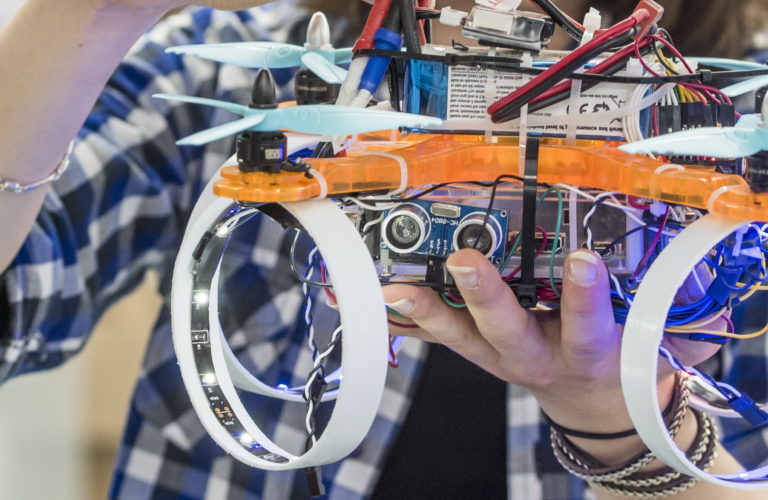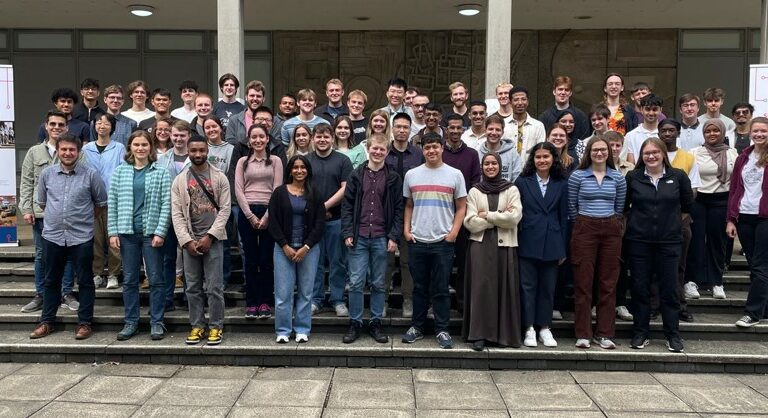“Young electronics engineers make great ‘real’ models and we encourage them to share their experiences.”
Stew Edmondson, CEO, UKESF
I recently read a blog post from The Institute of Engineering & Technology bemoaning the lack of role models. The post reported findings from a study, that young students lack role models in areas such as engineering, particularly during the crucial teenage years when they must make important career decisions. The survey of a 1,000 young people aged 10–16 found that 27% could not think of a relatable role model for careers in engineering. Fewer than one in five of the respondents could name at least two engineers, scientists or mathematicians.
Ok. Fair enough. However, I think that this misses an important point.
The topic of role models has often come up during discussions about skills with Electronics industry audiences. I recall somebody once saying to me, “What we need to promote careers in Electronics is a Jeremy Clarkson-type figure”. Now, I have nothing against Jeremy Clarkson but I’m not sure that he would ever consider himself to a role model. I know that you can argue, for instance, Bear Grylls has been influential in changing perceptions about the Scouting movement. However, in my opinion, this sort of high profile media endorsement only goes so far. I firmly believe that rather than this kind of role model what we need are ‘real models’.
A ‘real’ model looks like me and their experiences are similar to mine.
Whilst it may appear alluring to have a high-profile figure endorsing and promoting a certain career, their impact can be overstated. This is because children cannot easily relate to them or their experiences. They can seem too old, too distant; how can a 14-year-old ever imagine themselves being such a person as Jeremy Clarkson?
For children at secondary schools thinking about the future, their concerns are about the next steps, for instance choosing subject options for GCSEs and then deciding on college and university choices. At this stage, careers and jobs are abstract ideas, not their reality. They need advice and they need re-assurance that they will be happy and successful in the world of work. However, this re-assurance is best given by believable and authentic ‘real’ models who are just a bit further down the road of their careers. So, for instance, somebody studying Electronics at college or university, undertaking an apprenticeship or in the early years of their post-education working life. They can say things like this:
“I chose to study Electronics because of my interest in hands-on science and understanding how things work. Whether a wall clock with LEDs displaying the numbers or making copper glow blue in a test tube; it was always the ‘cool factor’ got me into Electronics. Robots controlled with voice commands: extremely cool! What I like most about Electronics is the fact that there really is no limit to what can be done. I am very excited to be able to contribute and be part of the group of people responsible for today and tomorrow’s safer cars, faster phones, better hospital equipment, space travel… and so much more.”
This quote is from one the students that has been supported by the UKESF, through our Scholarship Scheme. These young electronics engineers make great ‘real’ models and we encourage them to share their experiences. We have also featured a number of these ‘real’ models in our new promotional campaign, Turn On To Electronics. Click here for the stories of six diverse young people who are currently studying for careers in Electronics.
There is another problem with using high-profile individuals as role models, and it is about the nature of work in our sector. Electronics and engineering are collaborative endeavours and success is down to the efforts of a team, not a single, high-profile, individual. Therefore, using individuals to try to promote careers creates a false impression. Rather, as another UKESF scholar has said:
“The best part is that everyone has to work together and therefore the job involves constant interaction with colleagues.”
So, rather that searching for elusive ‘role’ models to promote Electronics and engineering, we should instead turn to ‘real’ models – relatable, micro influencers, who can share their personal experiences to hep encourage others to follow in their footsteps.



